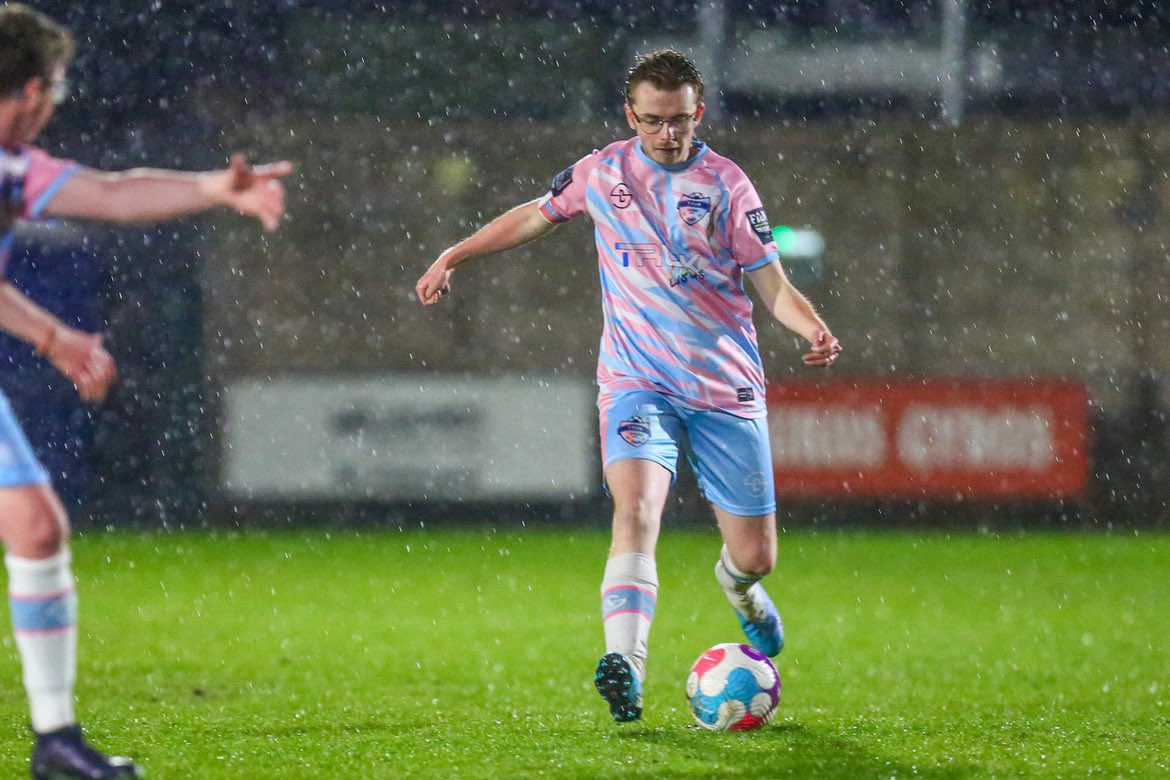In May 2025, the FA announced that from 1 June 2025, trans women would be banned from playing in women’s FA-affiliated football. To make it crystal clear, this is wrong. Science does not support it. I have seen so many friends devastated, in tears, and falling to their knees on the pitch during their last games for their beloved clubs. The FA has caused unquantifiable misery in its cowardice.
I’ve steered clear of centring my voice on this thus far because I am not a trans woman, and therefore it is not my story that needs to be told. If you’re interested in hearing transfemme voices in football, @transsomething.bsky.social, @lucyclark.bsky.social and @paulajgriffin.bsky.social are brilliant advocates. Additionally, if you care about how FA policy affects trans kids, follow @emanemz.bsky.social to hear from a parent of a trans daughter who plays football.
However, since this announcement, the FA has slipped in what I am calling a de facto ban on trans men’s participation. So, it’s time for Arthur’s opinion.
In order for a trans man to compete in FA-affiliated men’s football, he has to sign a declaration acknowledging his sex assigned at birth is different to most men participating. In the FA’s previous policy update, just three months ago, they used the correct terminology of ‘assigned male at birth’ and ‘assigned female at birth’. The post-Supreme Court ruling June 2025 update to the declaration is below:
“Player Declaration
I am a biological female whose gender identity is male or non-binary who would like to compete in open age Matches and Competitions that are reserved for men. I confirm that:
1. I have been advised by a Medical Professional as set out above.
2. I will maintain my testosterone level in the normal adult male range (7.7 to 29.4 nmol/L) for so long as I compete in open age Matches and Competitions that are reserved for men.
3. I am aware of The FA’s Anti-Doping Regulations and the requirements they contain in relation to my use of testosterone, including the requirement, at certain levels of competition, to obtain a therapeutic use exemption prior to starting treatment.
4. I understand that: (a) there are physiological and performance differences between adult biological females and adult biological males; (b) as a result adult biological females have a greater risk of injury when playing against adult biological males than when playing against adult biological females; and (c) my treatment will not fully alleviate those differences and consequential increased safety risks.”
I am not a biological female. I will not concede to talking points from those calling for my eradication. But more importantly than my own view, I do not see any other trans men choosing to define themselves in this way either. We are men, regardless of where we are with our social and/or medical transitions.
In response to receiving this document, I did what the FA clearly haven’t: I actually spoke to trans men and transmasculine people who play football with cis men. I probably know more trans players than the FA do, anyway. Trans people do all know each other, after all.
Every single one said they disagreed with the way the declaration was worded. “I would never agree to anything that says ‘I am a biological female’,” said one man. “I’d personally be really, really uncomfortable with signing that, it would put me off wanting to play,” wrote another.
The majority expressed disgust that the FA would pivot from inclusive language to the words of anti-trans campaigners. “That’s gross. 100% it’s transphobia,” one wrote. Another put it more simply, “Eurgh! No!”
“Are they just trying to humiliate us by making us sign?” asked one man. I couldn’t honestly disagree. “How humiliating and degrading. It’s football. Why is this happening?” said another. The FA knows what inclusive language is; it has used the terms we would prefer in previous documents. So, what is the purpose of choosing not to use them, if not to put us in our place?
One transmasc person pointed out the primary school permission slipesque nature of the document – that playing men’s football is a special treat we’re currently being permitted to indulge in, if we officially acknowledge that we’re really delusional little girls. But perhaps we won’t be allowed forever. “It feels like I’d be signing an exception clause that might be rescinded at any moment, and my very signing of it would be enough for them to justify removing me from the league, after all I’ve agreed with them that I’m ‘not a man’.”
This document is transphobic to its very core. It is abundantly obvious that the FA did not consult any trans men on the language change – or we’d have told them where to stick it.
“The whole FA approach has put me off playing, so I don’t anymore,” one trans man said to me. I doubt he’s the only one and I can’t help but wonder if that is the point.
Sport is a human right. It unites communities and provides well-documented benefits to physical and mental health. To exclude a population from it because, if rumours are to be believed, you’re terrified of being sued and having to actually stand up for your principles, is monstrous.
As a trans man who exudes football from his every pore, I am utterly repulsed that the FA are behaving in this way. They should have changed their tagline from ‘For All’ to ‘For Cisgender People’ on June 1st.
When I gave up football at 13 because I believed there was no place for me, I was inconsolable. Finding out I was incorrect, trans men were allowed to play, and returning to it as an adult was one of the best decisions I ever made. I had hoped nobody else would be made to feel as miserable and worthless as I did throughout my adolescence due to exclusion from sport. Boy, how wrong I was.
